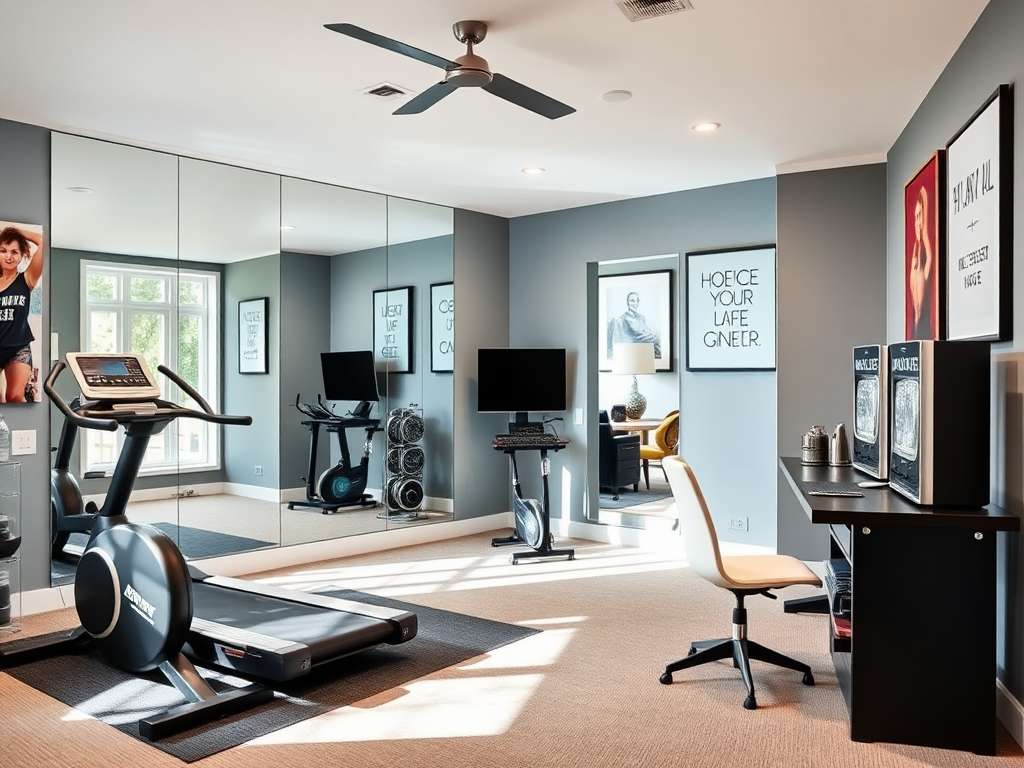Opening Remarks
Today I want to share a special topic - healthy lifestyle. You might think this is just about the same old talk of diet and exercise. However, from my three months of personal experience, a scientific healthy lifestyle can truly bring transformative changes. In this fast-paced society, more and more people are beginning to realize the importance of health, but often don't know where to start, or give up halfway for various reasons. Through my personal experience and practice, I hope to provide some practical suggestions and inspiration.
About Diet
When it comes to healthy living, diet is the first priority. Many people, like me, used to think that "healthy eating" just meant eating lighter foods. But that's actually quite wrong. According to the latest nutritional research, you need to consume at least 5 servings of fruits and vegetables daily. What does a "serving" mean? For example, a medium-sized apple counts as one serving, as does a bowl of lettuce salad.
When I first started changing my diet habits, I found it very difficult to adapt. But through a small trick, I gradually developed this habit - cutting up fruits and storing them in transparent containers, placed in the most visible spot in the refrigerator. This way, fruits are the first thing I see when opening the fridge, naturally leading to eating more of them.
Besides fruit and vegetable intake, regular meal timing is also very important. I found many people often skip meals or eat irregularly due to busy work schedules. This practice is extremely detrimental to health. Through three months of adjustment, I developed the habit of eating at fixed times and portions. I ensure three regular meals daily, with breakfast between 7:00-8:00, lunch between 12:00-13:00, and dinner between 18:00-19:00. This meal schedule not only helps the body better absorb nutrients but also improves work efficiency.
I also made major adjustments in food selection. Previously, I often ordered takeout or bought processed foods for convenience. Now I spend time selecting fresh ingredients at the market, and prepare some easily stored ingredients on weekends, allowing me to quickly put together nutritionally balanced meals on workdays.
The change in dietary habits isn't just about adjusting ingredients and timing; more importantly, it's a shift in mindset. I've begun to enjoy the process of preparing food, treating it as a daily ritual rather than a chore. This transformation has given me more reverence for food and greater attention to dietary quality.
On Nutritional Balance
When it comes to nutritional balance, many people's first reaction is "less oil and salt." However, the key is ensuring proper proportions of various nutrients. Protein and dietary fiber should be abundant, while fats, sugars, and calories need to be moderately controlled.
Let me share a practical "plate rule": Imagine your plate divided into four parts, with half for vegetables, a quarter for whole grains, and the remaining quarter for quality protein. By following this ratio for each meal, nutritional balance is no longer a challenge.
In practice, I found protein selection particularly important. Quality protein includes not just lean meat and fish, but also bean products and eggs. I plan different protein sources each week to avoid monotony. For example, fish on Monday, chicken on Tuesday, and bean products on Wednesday, ensuring both nutritional balance and variety in meals.
Whole grain selection is also crucial. I used to think staple foods meant just white rice, but now I've gradually transitioned to brown rice, oats, quinoa, and other whole grains. Although it took time to adjust to these foods' textures, I've grown to love their unique flavors. These whole grains not only contain rich dietary fiber but also provide sustained energy, preventing hunger.
I've also made significant changes in seasoning. Previously, I relied on various condiments to enhance food flavor, but now I use more natural herbs and seasonings like ginger, garlic, rosemary, and thyme. These natural seasonings not only make food more delicious but also offer various health benefits.
For snack choices, I've developed new standards. Instead of chips and cookies high in salt and sugar, I now choose healthier options like nuts, yogurt, and dried fruits. I also pre-portion my daily snacks to avoid unconscious overeating.
New Exercise Principles
After discussing diet, let's talk about exercise. Recent studies show that we need at least 150 minutes of exercise weekly. This number might seem daunting, but it breaks down to just 30 minutes daily, five days a week.
Moreover, here's an important discovery: even if you exercise regularly, prolonged sitting can't completely eliminate negative health impacts. So I've developed a habit: getting up to walk for 5 minutes every hour of work.
In choosing exercises, I took a gradual approach. I started with walking, spending half an hour walking around the neighborhood after work. Gradually, I increased walking speed and duration, then began trying jogging. Now I can easily complete a 5-kilometer running session.
Besides aerobic exercise, I've also started focusing on strength training. As a complete beginner in this area, I started with basic movements like squats, push-ups, and planks. Through online tutorials and professional coaching, I gradually mastered the correct techniques.
Exercise isn't just about health; it's a lifestyle change. I began participating in sports social activities, meeting many like-minded friends. We often run and play sports together, encouraging and supervising each other. This form of socializing not only makes exercise more fun but also increases motivation to persist.
In choosing exercise equipment, I've done considerable research. Proper running shoes are crucial for preventing sports injuries, so I specifically went to a professional sports equipment store for a running test to choose the most suitable running shoes. Additionally, choosing appropriate sportswear is key, selecting suitable materials and styles based on the sport and season.
Sleep Schedule Adjustment
Regarding sleep schedule, ensuring 7-9 hours of sleep daily is truly important. I know many people will say, "With so much sleep time, what about work?" But after three months of adjustment, I found that the efficiency improvement from regular sleep more than makes up for the time spent sleeping.
To ensure adequate sleep quality, I made many attempts and adjustments. First is fixing sleep times, preparing for bed at 10:30 PM and lights out at 11:00 PM sharp. Wake up at 6:30 AM. Initially, it was indeed difficult to adapt, especially maintaining this schedule on weekends, but after persisting for a while, my body naturally developed its biological clock.
Pre-bedtime rituals are also important. I turn off all electronic devices an hour before bed, using this time for relaxing activities like reading physical books, listening to soft music, or doing simple stretches. This helps the brain gradually relax and makes falling asleep easier.
Improving the bedroom environment is also key to enhancing sleep quality. I purchased blackout curtains, maintain room temperature between 20-22 degrees Celsius, and use sleep-aiding essential oil aromatherapy. These small details help create a more sleep-friendly environment.
Sleep schedule adjustment isn't just about sleep time but also includes daytime time allocation. I now concentrate on handling the most important work tasks in the morning when my brain is most alert. Afternoon tasks are relatively lighter, avoiding too much mental pressure.
Surprising Benefits
These changes brought unexpected benefits. Not only was weight effectively controlled, more importantly, I found myself more energetic and my thinking clearer. The afternoon drowsiness almost disappeared, and work efficiency notably improved.
Regarding physical condition, I noticed many positive changes. Previous occasional headaches and stomach aches basically disappeared. Skin condition also improved, with a healthier complexion. These changes strengthened my determination to maintain a healthy lifestyle.
Mental state improvement was also a major gain. Through regular exercise and adequate sleep, my mood became more stable, and stress tolerance increased. Previously, I might get anxious when facing difficulties, but now I can face and solve problems more calmly.
Social life also improved significantly. With good sleep habits, I had more time and energy for social relationships. Weekends could be spent exercising with friends or preparing healthy meals together, making life more fulfilling and meaningful.
Work efficiency improvement was one of the most obvious changes. Previously feeling time-constrained, now through scientific sleep scheduling and abundant energy, I can complete more work in less time. This positive cycle has filled me with confidence about life.
Final Words
You might think it's difficult to change so many habits at once. But I suggest starting with the easiest achievable goal, like drinking more water daily. Once this habit is established, try the next one.
Change doesn't need to happen overnight; what's important is having clear goals and a gradual plan. I suggest everyone first do a self-assessment, understanding which current lifestyle habits need improvement, then adjust according to priority.
During this process, maintaining patience and continuous motivation is important. You can track your progress through journaling, so when facing difficulties, reviewing previous achievements can provide more motivation to continue.
Remember, a healthy lifestyle isn't a short sprint but a marathon. Which of these suggestions do you think would be most suitable as your first step? Feel free to share your thoughts in the comments.
Friendly Reminder
Developing a healthy lifestyle indeed requires some willpower and persistence, but trust me, when you experience improvements in physical and mental state, you'll definitely appreciate the changes you made. After all, health is the foundation for pursuing everything else, wouldn't you agree?
Before starting changes, I suggest making a detailed plan, including short-term and long-term goals. Also, pay attention to your body's signals, don't force yourself to pursue so-called "standards." Everyone's situation is different; finding what works best for you is most important.
Finally, I hope everyone can find their own healthy lifestyle and make life more beautiful. A healthy lifestyle isn't just for ourselves but also for our family and loved ones. When we maintain good health, we can better care for those around us and create more value.
Let's work together, using science and persistence to exchange for a healthy and happy life!







